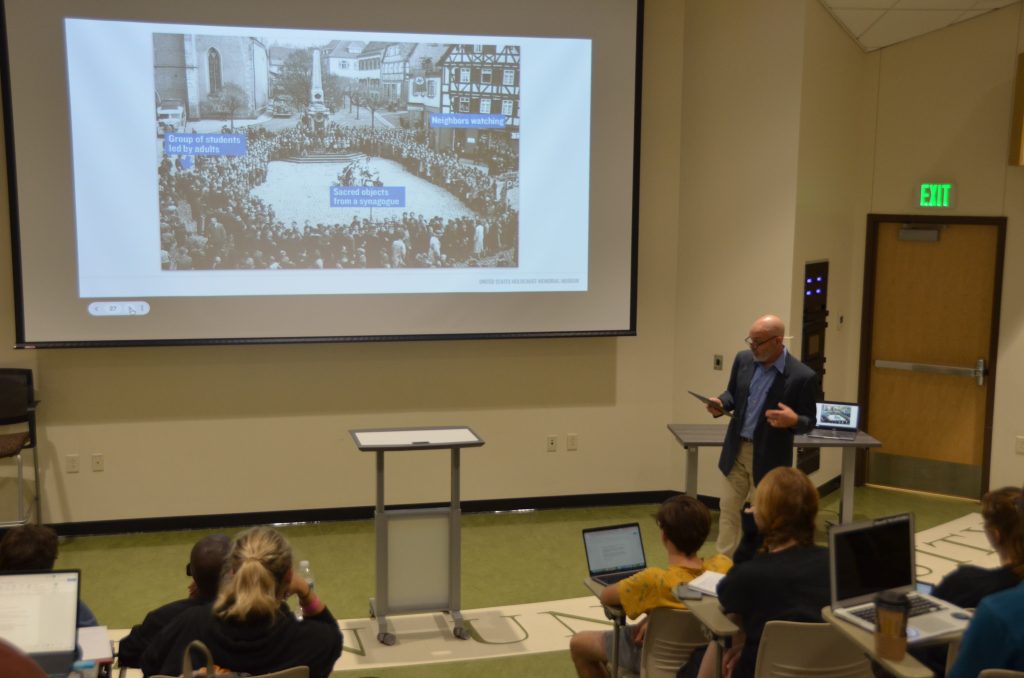
On Monday, the Institute for Genocide and Mass Atrocity Prevention (I-GMAP) held a seminar about Holocaust Education where they addressed the question, “How do we teach sensitive history?”
Speaking on the topic was Jeffrey Parker, a program coordinator at the Levine Institute of Holocaust Education at the United States Holocaust Memorial Museum. Parker works with professors to educate teacher candidates on how to properly teach Holocaust history in the classroom. Parker began his seminar by posing questions, such as, “What do you observe in this image?” Parker then elaborated on answers, giving the audience the chance to interact with the lecture.
Parker highlighted the importance of correctly teaching this history without spreading misinformation or glossing over sensitive material.
“We want students to look at photos, to look at documents, hear testimonies [and] read literature with critical senses and assess with historical context,” Parker said. “For historians and researchers who want to understand the complexity in present-day history, it’s a tool for exploring the past and understanding what happened. In a classroom though, I would argue the importance is unimaginable.”
Parker said it is important for students and educators to use the lessons learned in history class not just as a guide for study, but as a guide on morality as well — as they should learn lessons from the past.
Kerry Whigham, co-director of I-GMAP, explained that the purpose of the seminars is to spread knowledge about diverse groups.
“The idea is to introduce Binghamton [University] students to the vast array of work being done on atrocity prevention all over the world by bringing some of the world’s best practitioners here to the [BU] campus,” Whigham said. “At I-GMAP, we think everyone in the world can contribute to protecting the rights of vulnerable identity groups.”
I-GMAP will hold its next seminar on Oct. 11, with guest speakers discussing their experience witnessing human right violation in Afghanistan. I-GMAP hopes to bring in 10 speakers throughout the year to discuss their research on genocide and mass atrocities over the world.
Many of the Holocaust Education attendees were other educators. Rebecca Hemzik, a former high school social studies teacher, now an adjunct instructor, commented on what she viewed as the importance of teaching sensitive history.
“As an educator of future teachers, we discuss the idea of ‘how do you approach controversial issues in the classroom,’” Hemzik said. “How do you talk about the election, how do you talk about the [Jan. 6] event, because you do not know the political ideology of the students or the household? So how do you as a teacher bring these topics up without alienating students, and draw them into thinking about these issues critically or reasonably, not in a purely emotional way.”
Cole Parker, a senior majoring in political science, said he appreciated the chance to learn about different teaching applications.
“I’d love to take any opportunity to expand my knowledge in this field and take baseline understanding from professionals,” Cole Parker said, “It’s amazing to see how people can research how to effectively incorporate the teaching of concepts that are this complicated.”
In his final remarks to the audience, Jeffrey Parker discussed the importance of how children learn sensitive subjects.
“How are we expected to know the six million [lives lost], to know Auschwitz, when we’re focused on learning about rather than from,” Jeffrey Parker said.


